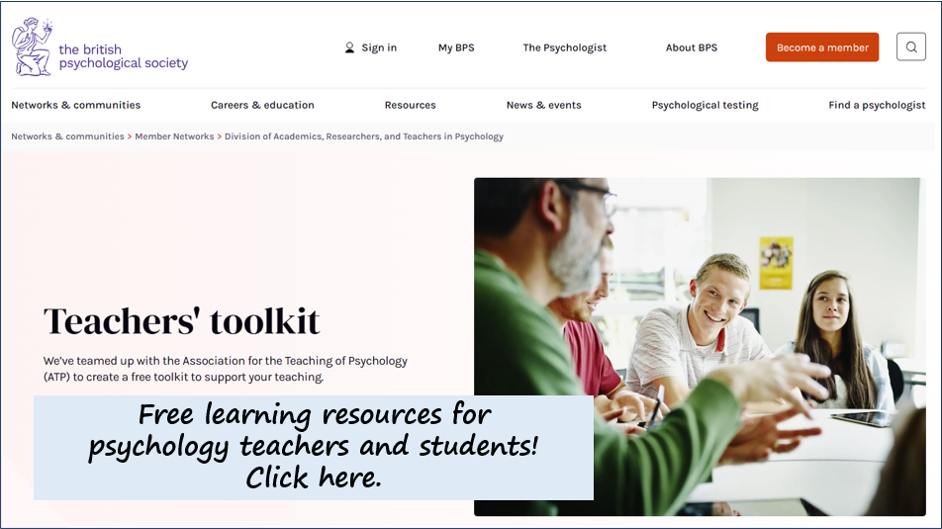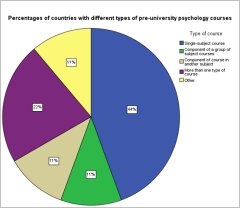

EFPTA Survey Research Project
Research project – Stage 2: teacher-training for psychology in Europe, 2011
The Stage 1 online survey of pre-tertiary psychology education (PTPE) in 2009 (see below) showed that one of the main concerns was availability of teacher-training for psychology in the 15-19 age group: both initial teacher education (ITE) and continuing professional development (CPD) varied across European countries, and in some cases psychology fared worse than other subjects.
For Stage 2, the research team (Renate Schrempf, Lenka Sokolová, Dorothy Coombs and Morag Williamson conducted interviews and a focus group in early 2011, with a total of 15 participants from eight countries where psychology is taught for A-level equivalent courses: Denmark, England, Finland, Germany, Iceland, Russia, Scotland, Slovakia. In respect of CPD, findings suggest that:
- in most countries availability of CPD for psychology is at least adequate
- participants from several countries felt that the best quality CPD was provided by their psychology teachers’ association.
ITE was more problematic. There are various forms of initial teacher-training and routes to achieving QTS in Europe, and participants from most countries were satisfied with provision, however, there were problems of availability of ITE in:
- England - small number of training places, and QTLS for FE is not valid as QTS for schools
- Scotland - no courses at all, and QTS for FE is not valid for schools.
- Germany - no courses in some regions (Länder)
England and Scotland appeared to be the only countries which make a distinction between teaching qualifications for schools and further education (FE) colleges; this was aggravating the ITE problems for psychology.
Availability of ITE for psychology seemed to be related to uninformed perceptions of psychology as ‘easy’, and in particular, to headteachers’ judgments regarding deployment of staff. Norms varied in relation to frequency and acceptability of deploying non-specialists to teach psychology: in those countries with good training provision, deployment of non-specialists was virtually unheard of, for any subject (eg, Finland, Iceland), whilst in countries with poor ITE provision it was not unusual (eg England, Scotland).
The researchers concluded that these major obstacles to ITE for psychology in England, Scotland and parts of Germany will need to be addressed, in order to:
- improve the supply of qualified psychology teachers
- enhance the quality of PTPE in the 15-19 years age band
- increase psychology teachers’ and new graduates’ career opportunities
.....and raise these to the standards that exist in most other European countries, and in other subjects.
This research was presented at the BPS Annual Conference in Glasgow on 5th May 2011, in the form of a research poster. See News pages. View the poster here.
|
Research project - Stage 1 An EFPTA online survey of pre-university psychology education in nine European countries in 2009 found:
|
 |
